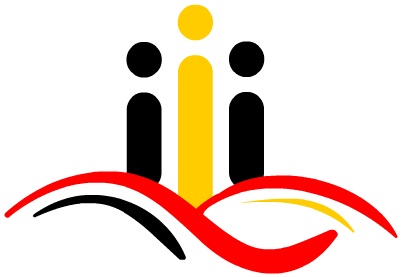Calling Australia Home
by John Clarke
The post World War II years saw many thousands leave the devastation of Europe for a new home in far distant Australia.
At the last meeting of the German speaking group Kaffee und Kuchen Steffi Traeger spoke of her own experience as a five year old, coming to a new land, her first destination and that of her mother being the Migrant Reception and Training Centre at Bonegilla in northern Victoria.
Fifteen year old Wladyslawa Kanicka had been taken by the invading Germans from her home in Poland and forced to work on a farm in Bavaria. While the work was hard, the farming life protected her from the worst ravages of the war. When the war ended, a return to her home, now under the control of Communist Russia, was not an attractive choice, and after a failed romance and the birth of her daughter Stefani, her one desire was to get as far away from Germany as possible. Where better than Australia, half the world away?

A crowded camp in Bremen was followed by a sea voyage aboard MS Anna Salen around the Cape of Good Hope to Melbourne. Steffi’s one memory was the loss of a doll. Her mother had bought her a large walking doll in Tenerife, but it disappeared, probably stolen.
An 8 hour train trip brought Wladyslawa (known in Australia as Ann) and Steffi to Bonegilla. Compared with the cold displaced persons’ camp in Bremen, riddled with infectious diseases, Bonegilla must have seemed a place of hope and promise. But it was not a paradise. Heat, flies and bland food.
Bonegilla, formerly a military camp, had been opened in 1947 to cater for the mass influx of migrants (between 1947 and 1971 approximately 300,000 arrived from fifty different countries). The site spread over 130 hectares and held 24 accommodation blocks, housing 8,000 people. For most, while work was found, the stay was short, but it could last for months. A school had to be provided and a hospital.
Ann’s knowledge of English, acquired while working as a waitress in an American Army mess, proved an advantage, and she found work quickly on a farm at Tallangatta. Steffi loved the open space and the animals, especially the dogs and cows.
Steffi concluded her speech, recognising the importance of the German community: “We left there when a young German migrant named Walter Siegmund, who came from Hamburg and whom my mother had met on the ship, came all the way from Naracoorte to pick us up. We were a family from then on. Ann and Wally were together then for fifty years. We made our home in Adelaide amongst a wonderful group of Germans, mainly from Hamburg, some of whom had also come on the Anna Salen like Ann and Wally and stayed at Bonegilla. These Germans became lifelong friends of my parents and me. Joerg and Elke Wiese here today are amongst them.”
The next Kaffee und Kuchen meeting will be held at the Langmeil Centre, 7 Maria Street, Tanunda on Monday, 29 September, starting at 1 pm.
